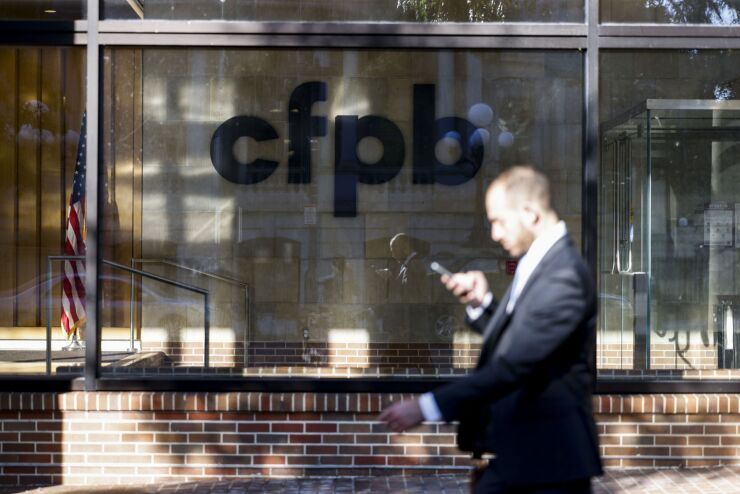
The National Community Reinvestment Coalition and four fintech companies are urging the Consumer Financial Protection Bureau and the Federal Housing Finance Agency to provide guidance on the use of machine learning and artificial intelligence in lending, which they claim would help eliminate discrimination.
In a letter to the regulators obtained exclusively by American Banker, the consumer advocacy group and the companies —
"One of AI/machine learning's beneficial applications is to make it possible, even using traditional credit history data, to score previously excluded or unscorable consumers," the letter states. "In some cases, AI models are enabling access and inclusivity."
The four fintechs are members of the NCRC's Innovation Council for Financial Inclusion, a forum that discusses and pursues policy goals in which industry and consumer groups are aligned. Machine learning and some "deep learning categories of AI" can be responsibly used to develop underwriting models to help lenders comply with anti-discrimination laws, the letter states.
Last year the CFPB said that consumer lenders have an affirmative duty to monitor, refine and update lending models and to search for less-discriminatory alternatives. Since then, there has been a push for the agencies to explicitly allow the use of AI and machine learning in searches for alternative lending models that are less discriminatory.
Another recommendation cited in the letter is for the CFPB to identify activity that triggers fair lending oversight and what types of conditions would require a lender to engage in a search for a less discriminatory alternative that would allow credit to be extended to underserved populations.
"Some of these tools describe themselves as utilizing transparent machine learning, a subfield of AI that is being used in the market today and can produce inclusive credit decisions," the letter said.
The groups also recognize the potential for misuse.
"As these AI methods are explored, transparency is essential. Internal and external stakeholders must be able to understand how a model works and correct for biases embedded in historical data used for building these machine learning models," the letter stated.
In addition, the letter asks for FHFA to build upon
CFPB Director Rohit Chopra has
Fintech companies that sell and use machine learning in lending decisions have long claimed the technology can and should be used to expand credit to moderate- and low-income borrowers. Meanwhile, consumer advocates have spent decades trying to push lenders to lend more to protected classes. Both groups are now arguing that machine learning and AI can be used to potentially root out discrimination and bias in credit scores, appraisals and underwriting.
"AI tools can more comprehensively assess the risk of an applicant and should be adopted earlier and favored over older models and tools," the letter stated.
While much of NCRC's letter focuses on the potential financial inclusion benefits of AI and the fintechs are highlighting their ability to develop and test algorithms, other consumer advocates are less sanguine about the technology.
In June, two other consumer groups — the Consumer Federation of America and Consumer Reports —
In general, the consumer advocates want the CFPB to be aggressive in punishing lenders that use discriminatory models while also establishing guardrails to protect any consumer whose creditworthiness is assessed by a machine.





